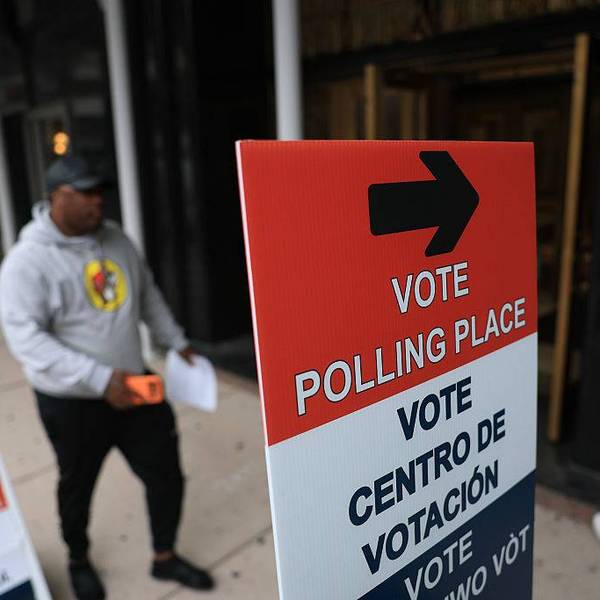The 2016 presidential election was the peak, at least thus far, for the tactics of identity politics in U.S. elections. In the Democratic primary, Hillary Clinton's potential status as the first female candidate was frequently used not only to inspire her supporters but also to shame and malign those who supported other candidates, particularly Bernie Sanders.
In February 2016 -- at the height of the Clinton-Sanders battle -- former Clinton Secretary of State Madeleine Albright introduced Hillary Clinton at a New Hampshire rally by predicting a grim afterlife for female supporters of Sanders, while Clinton and Cory Booker cheered: "There's a special place in hell for women who don't help each other!" she announced.
Though Albright apologized in the New York Times for her insensitive phrasing after a backlash ensued, she did reaffirm her central point: "When women are empowered to make decisions, society benefits. They will raise issues, pass bills and put money into projects that men might overlook or oppose."
At roughly the same time, Clinton supporter Gloria Steinem said female supporters of Sanders were motivated by a primitive impulse to follow "the boys," who, she claimed, were behind Sanders. Just this week, the Clinton loyalist and Salon writer Amanda Marcotte said Trump won "because some dudes had mommy issues," then clarified that she was referring to left-wing misogynists who did not support Clinton: "I also have those moments where I'm like, 'Maybe we need to run Bland White Guy 2020 to appease the fake socialists and jackass mansplainers.'"
By no means did these rhetorical tactics make their debut appearance in the 2016 Democratic primary. Indeed, the far more vitriolic 2008 primary -- between Clinton and Barack Obama -- was driven in large part by similar identity-based accusations from both camps.
Clinton supporters constantly accused Obama supporters of being driven by misogyny for opposing the first female president (a charge voiced by Clinton herself), while Obama supporters routinely depicted the Clintons and their supporters as racist due to the nature of their opposition to the first African-American president.
The term "Bernie bros," which became so widespread as a term of recrimination against Sanders supporters in 2016, was actually conceptually invented in 2008 to malign Obama supporters. Rebecca Traister, then of Salon, wrote under the headline: "Hey, Obama boys: Back Off Already!" about women reporting "the sexism they felt coming from their brothers and husbands and friends and boyfriends [who supported Obama over Clinton]; some described the suspicion that their politically progressive partners were actually uncomfortable with powerful women."
Read the full piece, with possible updates, at The Intercept.




